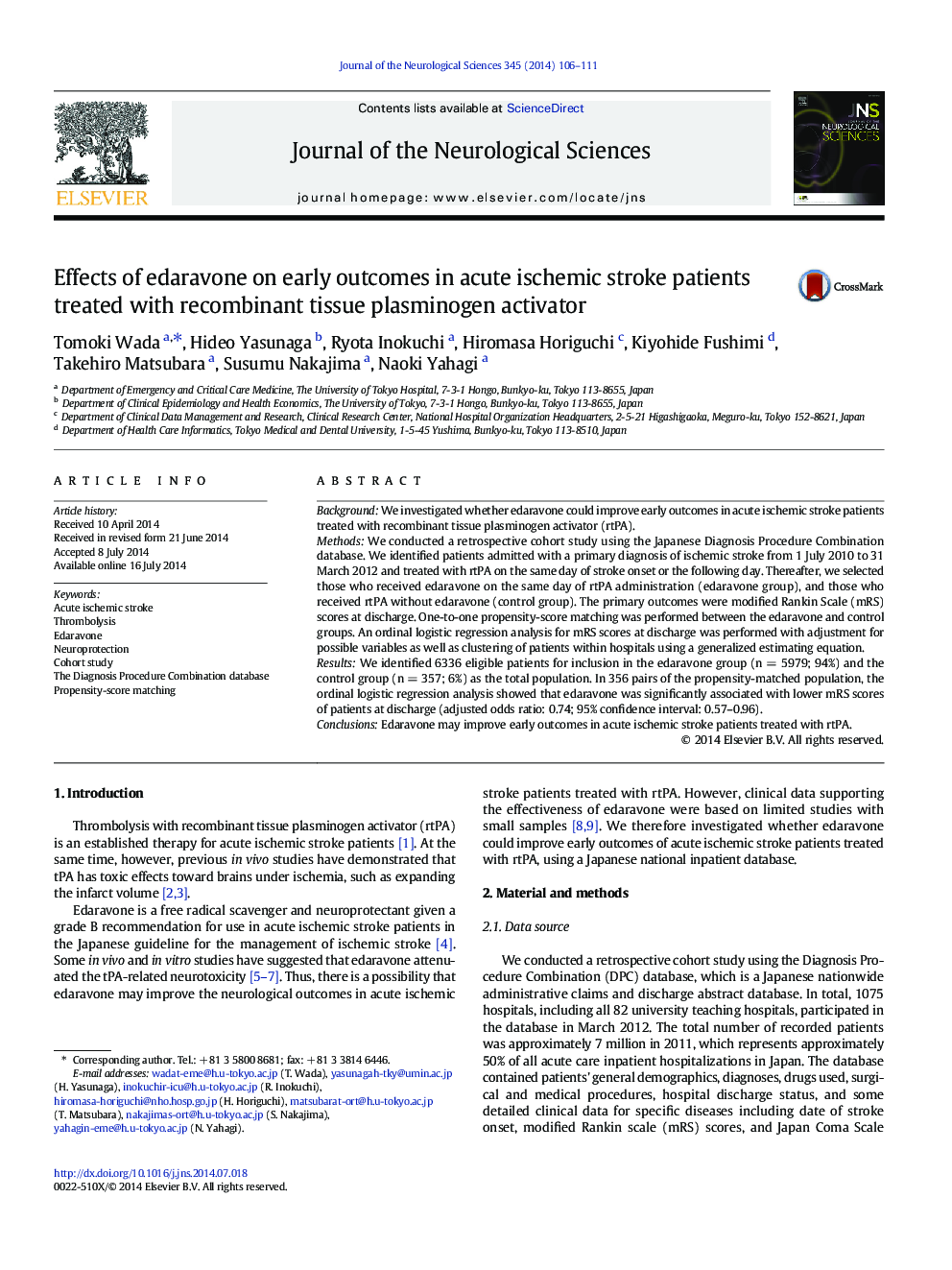| Article ID | Journal | Published Year | Pages | File Type |
|---|---|---|---|---|
| 1913353 | Journal of the Neurological Sciences | 2014 | 6 Pages |
•We use a national inpatient database in Japan.•Propensity-score matching analyses are performed.•Edaravone improves early outcomes in acute ischemic stroke patients treated with rtPA.•Randomized control trials are needed to further evaluate the efficacy of edaravone.
BackgroundWe investigated whether edaravone could improve early outcomes in acute ischemic stroke patients treated with recombinant tissue plasminogen activator (rtPA).MethodsWe conducted a retrospective cohort study using the Japanese Diagnosis Procedure Combination database. We identified patients admitted with a primary diagnosis of ischemic stroke from 1 July 2010 to 31 March 2012 and treated with rtPA on the same day of stroke onset or the following day. Thereafter, we selected those who received edaravone on the same day of rtPA administration (edaravone group), and those who received rtPA without edaravone (control group). The primary outcomes were modified Rankin Scale (mRS) scores at discharge. One-to-one propensity-score matching was performed between the edaravone and control groups. An ordinal logistic regression analysis for mRS scores at discharge was performed with adjustment for possible variables as well as clustering of patients within hospitals using a generalized estimating equation.ResultsWe identified 6336 eligible patients for inclusion in the edaravone group (n = 5979; 94%) and the control group (n = 357; 6%) as the total population. In 356 pairs of the propensity-matched population, the ordinal logistic regression analysis showed that edaravone was significantly associated with lower mRS scores of patients at discharge (adjusted odds ratio: 0.74; 95% confidence interval: 0.57–0.96).ConclusionsEdaravone may improve early outcomes in acute ischemic stroke patients treated with rtPA.
